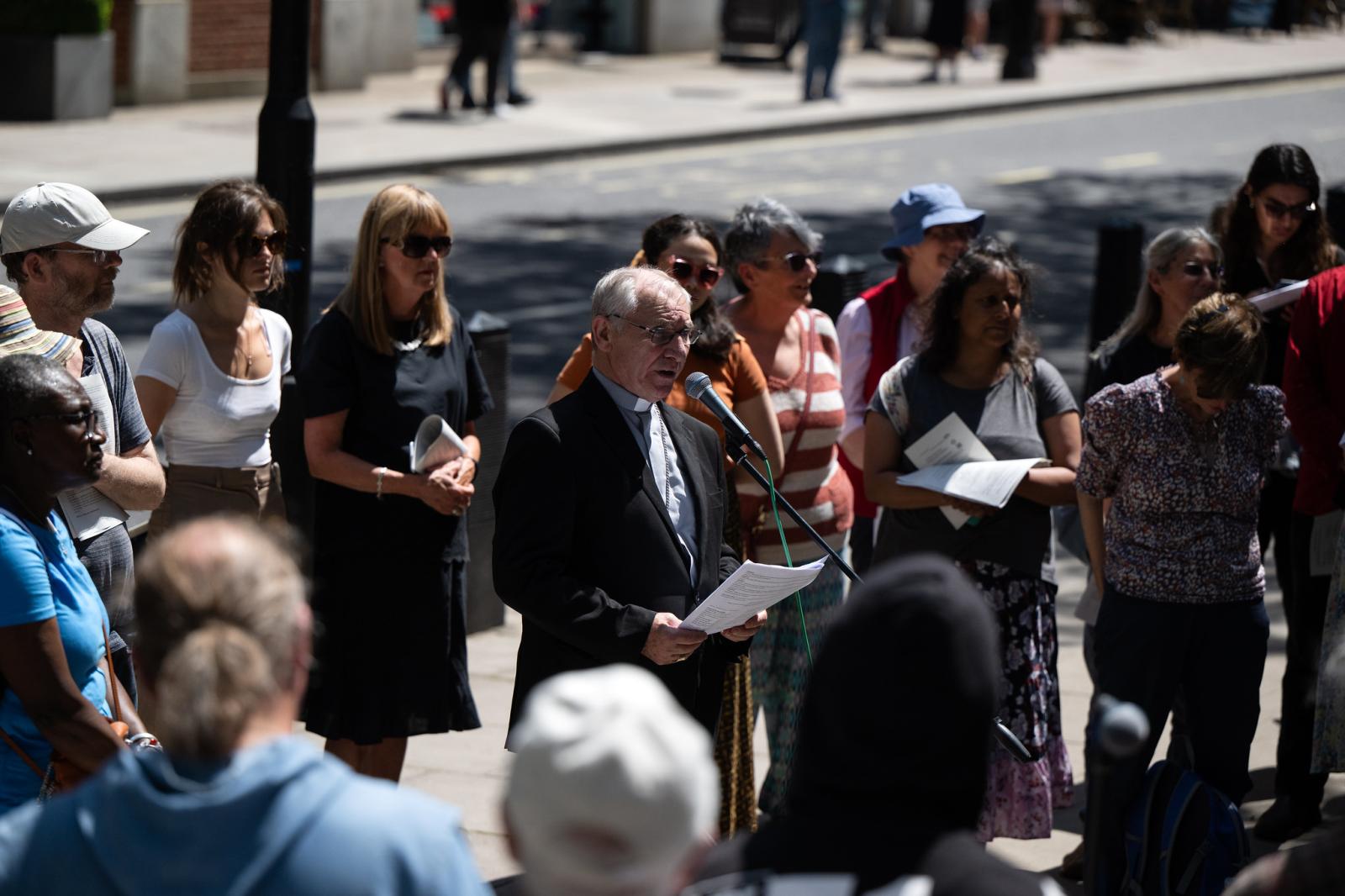Address given by Bishop Paul McAleenan at the Home Office Vigil during Refugee Week, on 19th June, 2023
The reality of the life of a refugee, the hardships and hazards they endure opens this Refugee Week as we listen to the accounts of the latest tragedy off the coast of Greece.
No doubt there will be investigations and enquiries into the tragedy, into the events of the preceding hours before the boat sank so that the truth can be uncovered. Those enquiries are important.
Our concern is not simply the events and decisions which took place immediately before that tragedy but the decisions and the policies which have been in place for many, many years which make such tragedies almost inevitable. The term safe and legal routes come to mind again.
We see again the consequences of policies which do not include compassion, the theme of this year’s Refugee Week. We see again the need for international cooperation.
When law and policies increase suffering, compound trauma, and put lives in danger, justice is not served. To advocate on behalf of migrants, refugees, displaced persons, asylum seekers is not simply kindness but it is a plea for justice for the most vulnerable, it is to do what the law should do.
Migrants, refugees, asylum seekers have had to abandon those things from which one has the right to expect stability and security, homeland, family, familiar customs. Our solidarity with them comes from this basic belief, that we have a duty, an obligation towards those who have lost everything.
When they encounter rejection, not surprisingly there will be consequences which impact upon their mental and physical well-being. There will also be consequences which impact upon the whole human family. So I repeat that to support migrants and refugees is not almsgiving but an attempt to build fraternity and unity by encouraging the sharing of resources.
In Isaiah a verse describing the manner of the Redeemer in his pursuit of justice says of him, ‘He does not break the crushed reed nor quench the wavering flame’.
If someone has fled their homeland, crossed a desert and a sea and survives and is then detained, denied the right to work, threatened with deportation is it likely that the flame of hope which they managed to keep alive is going to be strengthened or extinguished?
We oppose Immigration systems which threaten to destroy hope, which divide people into categories giving different rights to each category.
Whether a person is a citizen, a migrant or a refugee they have a dignity, that innate dignity is our starting point and one which what ever else we must keep in mind.
To say we respect someone’s dignity is one thing, though I don’t think the word ‘respect’ captures the fullness of our obligation. The dignity of a person is so sacrosanct it needs to be protected and promoted, it involves relationship.
To meet a refugee and listen to their experience is very enlightening, informative and moving. We may not have met a refugee in the flesh; nevertheless we can stand with them and for them. That is what we are doing now, making a statement, declaring they are our brothers and sisters.
So I thank you for all you do, for your presence here today at the beginning of Refugee Week. May our prayers and our work bear fruit for the good of all especially those who have nothing.
Bishop Paul McAleenan
Photo: Mazur/CBCEW.org.uk
